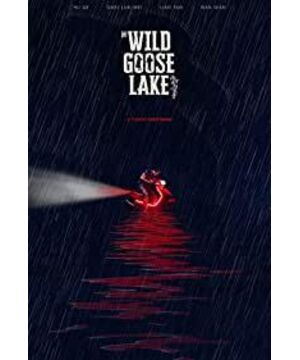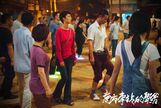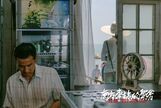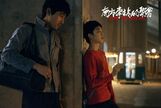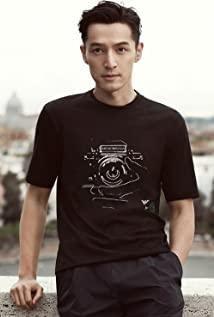In an interview, Diao Yinan explained why he chose Wuhan as the shooting location——
"Before making the movie, I looked for suitable spaces everywhere. I went to both Guangdong and Yinchuan. Wuhan is a city of hundreds of lakes. It has many lakes and different landscapes and lakes, so I finally chose this place.
Wuhan is a place of wharf culture. People are more sturdy and hot. The actors have all learned the dialect here. The Wuhan dialect gives the movie a powerful atmosphere. "
More than a month ago, "Youth in Youth" made another city Chongqing a hot spot. Shabin Road, Zhongshan 4th Road, Nanbin West Road, Kuixing Tower, Sujia Chongqing Railway Middle School, Tongyuan Bureau Subway Station, Dam Overpass, Tube Tower... Chongqing’s sense of space and magical colors made the crew not hesitate, "It was originally There are a few places to go. The first one came to Chongqing, and I didn’t think I needed to see it anymore."
The purpose of the two productions is similar, but the artistic intentions presented are quite different. "Young You" focuses on a kind of "reality", while "South Station" is the "reality" of a deeper landscape society.
The most typical difference is that Chongqing is highly defined and its landmarks are distinct, while Wuhan's face is blurred. The iconic "Wild Goose Pond" is a fictitious name. It even grafts some features from other places to create a familiar place. An environment with strong exotic colors.
Diao Yinan has the habit of combining logo landscapes. On the eve of the high-speed rail era, "Night Train" keenly shows the scenes along the railway, factories and chimneys, stations and carriages, interrogations and prisons, carriages and gloves... intertwined with broken fragments of human nature. "Fireworks in Daylight", which was set in Harbin, focused the image on coal and snow.
Shadow and shadow are the most suitable words to describe the style of this movie. In the film, lighting and setting become content elements that cannot be ignored, and shadows are always the focus of implementation.
The sound surprised me even more. After watching the film at the Cannes Film Festival, many media asked whether the voice has not yet been completed, and the dialogue of the characters is often overwhelmed by environmental sounds, making it difficult to hear clearly. I still remember that the crew also responded that it did not do a good job, but the current version released in China has not changed much. The sound processing of the film is intentional.
The dialogue between Zhou Zenong and Liu Ai'ai, like a whisper, was overwhelmed by the train above them, and the noise of the times made their speech clear and difficult to distinguish.
Many scenes impressed me deeply. The car theft gang led by Zhou Zenong divides the site, the old factory demolition led by Huang Jue draws lots, Liao Fan leads his teammates to solve crimes, arrest people, and accompany swimming girls to swim scenes... These social wonders are scattered in the movie, with experiments. Sex, like specimens to be visited.
If there is a landscape, there must be a view, and the eyes cannot go around. The lens captures the eyes as the most important thing. Zhou Zenong's expressions of animals when he entered the zoo echoed the expressions of the people hiding in the dark in the tube building, and there was no difference in their expressions.
Shadows, onlookers, and crowds are shrouded in violence, money worship, and boundless darkness. Human nature is held hostage by violent animal nature. Reality gives way to reality. "Southern Station" creates a cold, monotonous, hopeless, and suppressed by history. A mysterious and dreamy landscape society full of bizarre death.
[The "Roaming" Dream of the Sixth Generation Director]
The stylization of "South Station" makes the whole film superior to reality, presenting a "rabbit hole"-like "landscape" reality.
Regarding Zhou Zenong as a fleeing hero, it has become a quite modern martial arts film. I prefer to think of him as Alice. The whole process of watching the movie is led by a strong sense of "roaming", following in the footsteps of Zhou Zenong, admiring what I have seen and heard along the way, walking into the innermost rabbit hole, where the ending is hidden.
Born in 1968 and graduated from the Literature Department of the Central Academy of Drama, people would put Diao Yinan into the sixth generation camp. From a creative point of view, this is indeed the case. This sense of "roaming" is not alone. For the sixth generation of directors, it is more urgent to record the times than to tell good stories.
In order to make it clear, I have to briefly summarize——
Jia Zhangke is the master of the "roaming" story. The audience follows Zhao Tao across the country. Almost all of Jia Zhangke's films emphasize the sense of migration. In "The Good Man in the Three Gorges", he focused the camera on the ruins of the Three Gorges under construction and demolition, and returned there ten years later to photograph the appearance of the ruins after Gaoxia exited Pinghu.
The characters of the section chief like to drift outside the picture. At the beginning of "The Children of the Rivers and Lakes", the camera carefully examines the faces of passengers on a bus. "On the road" and leaving their homes are important states of contemporary people.
When talking about Jia Zhangke in the 10s, "Heaven Is Destined" cannot be avoided. The film is adapted from the four hottest news events of those years. When Jiang Wu hums and sings Lin Chong, a unique news landscape is placed in a historical and cultural context. This story resonated.
Lou Ye is the only urban film creator in China. After the reopening, the subway signs in Shanghai, the city skyline in the distance from the sound of the motor, and Nanjing and Beiping... Up to now, his hometown Shanghai is the city where he has photographed the most.
Lou Ye's Shanghai mostly exists in two time and space, before liberation and after reform. Especially after the reopening, with "Suzhou River" and "In Shanghai" as the representatives, the reopened iconic city was recorded on the screen.
Compared to others, Lou Ye's uniqueness lies in the landscaping of eroticism, homosexual, heterosexual, distorted, normal, beautiful, ugly... Until "Lanxin Theater", this erotic picture scroll is rich enough.
Wang Xiaoshuai is the one who is relatively good at telling stories and the one with the best acting skills. In order to recreate the historical situation, his works often require the most detailed restoration of the environment and fine polishing in the dialogue.
What is worrying about the old man living alone, played by Lu Zhong? Why is Wang Jingchun frowning all the time? Facing the nightmare of history, portraits exist as a kind of portraits of the times.
[People watching the scenery look at you on the bridge]
Although they have their own priorities, weakening of human nature is almost the common point of the sixth generation of directors. It may be difficult to win acting awards through the films of Jia Zhangke and Lou Ye. Drawing nourishment from European movies, their philosophy is like the "Wizard of Oz" director Kim Widow said, "In Hollywood, lights brighten up the stars, and in Europe, lights brighten up the scenery."
In terms of actor selection, "Southern Station" is the most extreme one among several sixth-generation directors in the 10s. The image of Gui Lunmei is a bit indistinguishable from male and female, cold, flat, but memorable, it is a landscaped face.
Zhou Zenong, who doesn't need a deep level of humanity, is also a landscaped figure. Hu Ge, carrying the burden of idols, is hard to perform, and his acting is naive, which is also Zhou Zenong's real dilemma (at the beginning of the story, he occupies the core site, but his ability is not convincing), giving the characters another layer of reality.
Director Abbas Kiarostami wrote in the book "The Taste of Cherry": Content is the foundation of the film, and form serves the content. However, when a director plays the form to the extreme, then the form is enough to become the content itself. (To the effect, not the original text).
"South Station" shifts the focus from the story and the characters, and transfers it to the spectacle society for presentation, and the plot should no longer be the core criterion of the film. Perhaps the most reasonable standard is whether its form is extreme enough and systemic enough.
How to understand the order of beauty behind the form? For example, for a bitten apple, it is not incomplete in two cases, one is that it is a geometrically designed Apple LOGO, and the other is that 10 bite apples are placed side by side.
It looks black, but not black enough; it looks like a martial arts, but it is not clear; it looks suspenseful, but does not create a reversal; the character Liu Aiai is gray, unrighteous and innocent, with a Hu Jinquan-like female chivalry appearance, and its behavior Is a whistleblower.
The audience can no longer use the typical characteristics of the genre to criticize, it has successfully constructed another peculiar style, using martial arts to oppose black, and black to fight martial arts, forming a kind of beautiful order on its own.
Guy Debord once pointed out that the nature of the landscape is not the accumulation of images, but "the social relationship between people who use images as an intermediary." Movie-watching behavior will surely become an important symptom of the spectacle society.
Killing with an umbrella is a romantic expression. Some netizens pointed out its origin. An old genre film of the last century was a manifestation of blood plasma and killing in that movie. When it is used in "Southern Station", it presents an ultimate experience of light and shadow. It will only be viewed by the audience as a landscape without complicated humanity and motives. The audience is like the residents hiding in the dark and watching in the film, and they are woven into this wonder.
Therefore, "Southern Station" has a certain sense of provocation. The dryness of the film is exactly the dryness of the audience. It is a series of borrowings of old film styles, all attributable to one point——
Departing from human nature and human modernity, the film art collective presents a tendency to deliberately create landscapes for viewing, deliberately and superficially, just like the song "The Beautiful Solo River" in the film. It sounds high-pitched and clear, but the sound But from a living deformed "installation", then what is the relationship between this song and the protagonist and the audience?
[From Carrigari to Bunuel]
When we look at the landscape, how should we understand it?
For example: idols and fans. A group of fans ran to the airport and surrounded them, watching the idol come out. They snapped the camera on the face of the idol and took the picture.
Or, an idol sends gifts to an office, and people put aside their work, scramble to watch, play games with idols, let idols take photos, sign autographs, broadcast live, and answer questions.
At this time, the idols being watched and the fans of the watching idols are very dry with each other, and animality and sociality are almost far higher than humanity. Idols commoditize themselves without humanity, and fans gather in a group without humanity. Prestige and obedience, worship and being favored, and gender asymmetry are presented as reality in this scene, which is the most typical landscape of this era.
If an artist tries to add humanity to the distorted age and creates in the way of a healthy age, he will inevitably become a "liar". If they want to present reality, they must recreate a certain stylized form.
Suppose you have a picture of fans watching idols in your mind. It may be a chaotic situation. Then compare the factory scene in Orson Welles' "Trial" and make the two overlap. Compared with the scenes in reality, standing at the height of Kafka's original work and extracting reality from reality, Orson Wells just ordered the things in the picture.
German expressionist films inspired the creation of Orson Wells. We can also rearrange the sequence of images that fans watched by using the style of expressionist painting.
The plastic feel of "South Station" reminds me of "Dr. Caligari's Cabin", which is a crime genre, dark and weird. Everything in it seems very cheap and false, just like the one in "Metropolis" It's the same in that city.
At that time, Germany had just experienced the humiliation of being defeated in World War I. Everything was extremely chaotic. People were desperate for order. Nazism was brewing. The shadow of "Nosferatu" was shrouded and death was everywhere. People were sad, desperate, Painful, depressed.
"South Station"'s presentation of shadows and meaningless death (cutting the skull, lying to death, inexplicably shot) makes me guess that expressionist films may be its source. On the other hand, Spanish director Buñuel-influenced by expressionism, surrealist style-also influenced him.
May as well simply put together the plot synopses of "Daylight Fireworks" and "Day Beauty". The concepts of the two works are similar:
"The unresolved Zhang Zili took the initiative to approach Wu Zhizhen, but fell in love with this woman like moths into the fire. The two people who had suffered major setbacks in life gradually changed from sympathy to love each other. With more intimate contact, Zhang Zili discovered five The truth from years ago."
"From initial resistance to complete liberation, in the process, Severina met the professional killer Marcel, who was attracted by the beauty and mystery of this day beauty, but also brought each other into reality and Amidst the chaos of illusion."
Similar to Germany in the 1920s and 1930s, Bunuel was born in 1900, caught up with the Spanish Civil War, experienced the cruel Franco dictatorship and harsh religious atmosphere, and was used to seeing abnormal, chaotic and disorderly conditions. The social picture, therefore, his works are bizarre, fragmented, serious, and profound.
The provocation that Bunuel brings to the audience is one of my deepest feelings when watching "South Station". The experience of "roaming" in dreams may also have a lot to do with Bunuel.
【Resistance and Reconstruction】
Similar histories and human conditions are closing the gap between Central and Eastern European art and domestic artists.
On the other hand, the consumption landscape and materialism influence the audience's choices. Compared with Hollywood and genre film creators, Cannes and realist creators who have been enshrined, whether it is expressionist films or Bunuel, are too heavy, gloomy, boring, high and low, it is difficult to be in the country. Is popular among fans of the movie.
It is established to regard the display of "spectacle society" as the collective feature of the sixth generation of directors. Bunuel’s surrealism ("Six Desires"), German expressionist films, and the late Bella Tal ("Elephant Sitting on the Floor"), etc., may be providing more appropriate examples for young creators .
When the creators collectively present a symptom, talking about "South Station" cannot be discussed in isolation, nor can it be separated from the times. Therefore, many harsh evaluations and opinions at present appear to be very noisy. We need to carefully examine these works, they are closely related to us, including but not limited to-
Diao Yinan: "Fireworks in Daylight" and "Gathering at Southern Station"
Lou Ye: "Wind and Rain", "Mystery of the Floating City", "Tuina"
Wang Xiaoshuai: "Intruder" and "Everlasting"
Jia Zhangke: "Children of the Rivers and Lakes", "Old People of Mountains and Rivers", "Heaven Is Destined"
Wang Bing: "Fang Xiuying", "Three Sisters" and "Bitter Money"
Why don't you try to take a constructive view of the whole, what kind of social picture do they "keep in mind" for us?
These movies are certainly not perfect. Bunuel once said, "The real goal of the Surrealist movement is not to encourage a new literary or artistic, or even philosophical movement, but to overthrow the old order of society and make life completely different."
This sentence helped me explain the dissatisfaction when watching "Southern Station": I came from college, studied literature, and had a high-cold temperament, which made me look very lofty and a sense of "show off". There is also Jia Zhangke's sense of "stacking" of symbols, Lou Ye's sense of "suspension" of erotic desire, and Wang Xiaoshuai's sense of "moderation".
Because of the limitations of the times and the influence of factors such as censorship, this kind of show off, pile-up, suspension, and moderation have become shortcomings that they have to face.
In other words, Diao Yinan had no other way to go except putting himself in the film museum; Jia Zhangke could not build relationships in depth, so he could only simply pile them up; Lou Ye was sensitive to political symbols and had no chance of landing; Wang Xiaoshuai was accustomed to compromise. . Since I cannot deny myself, I have to coexist with it.
Without resistance and sharpness, they currently only exist at the level of constructing personal artistic style, let alone taking on the responsibility of making reality "reborn".
However, they have just entered the peak of creation, and everything is too early to say. FIN
View more about The Wild Goose Lake reviews


